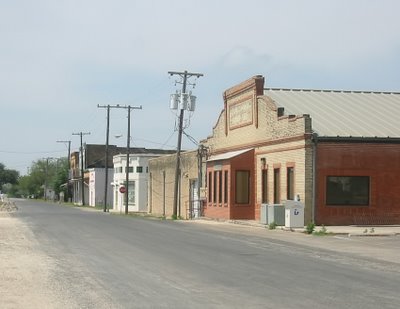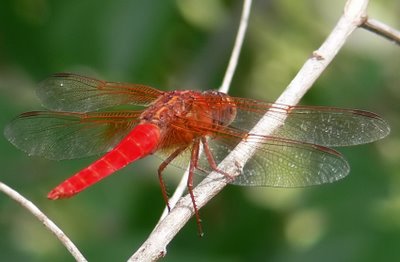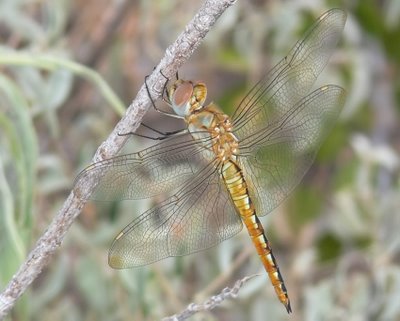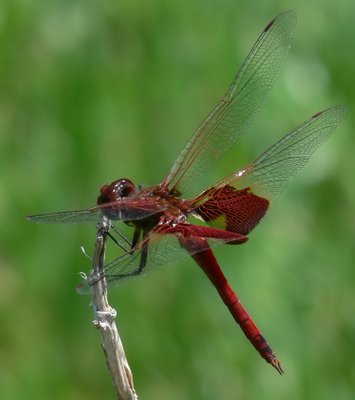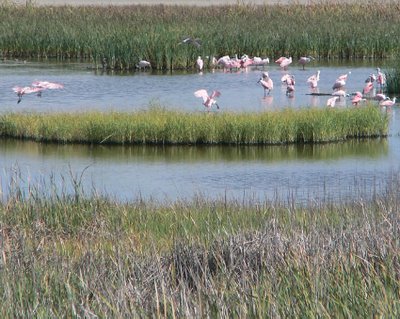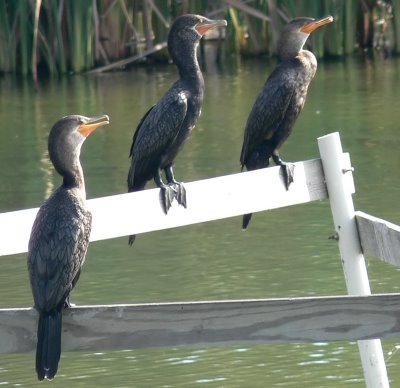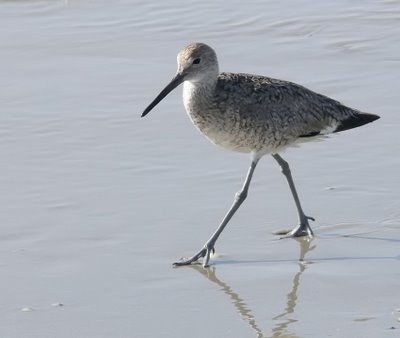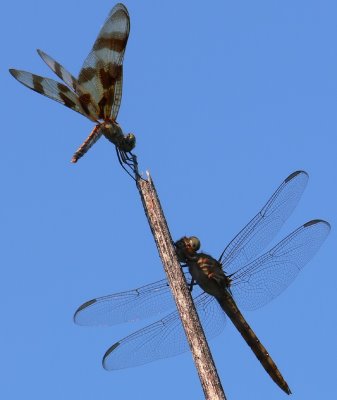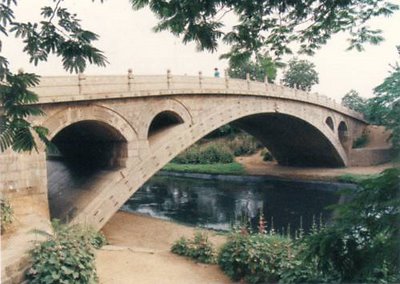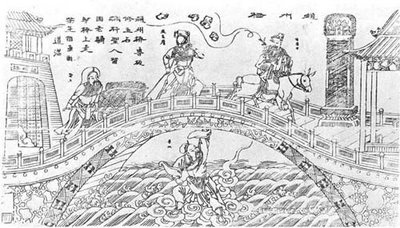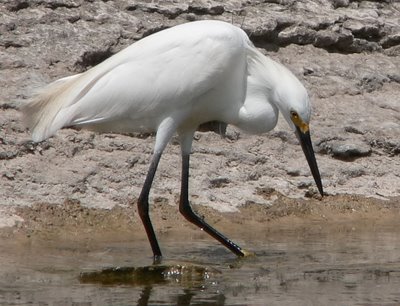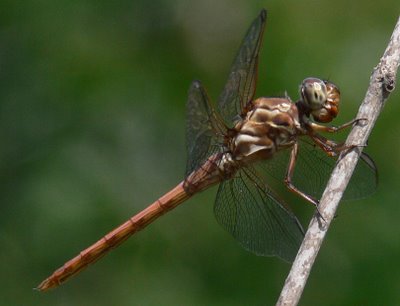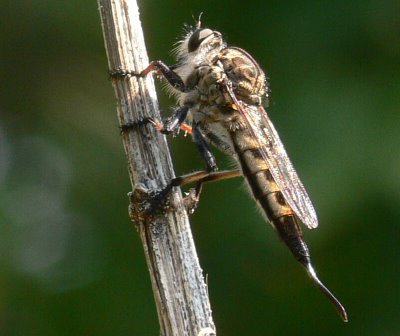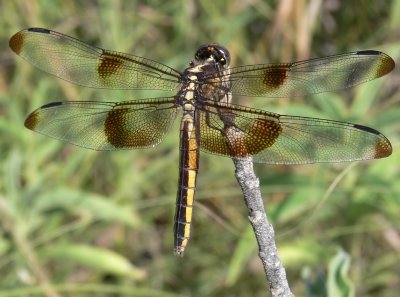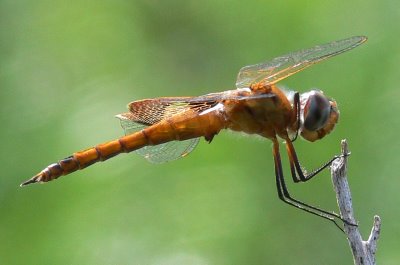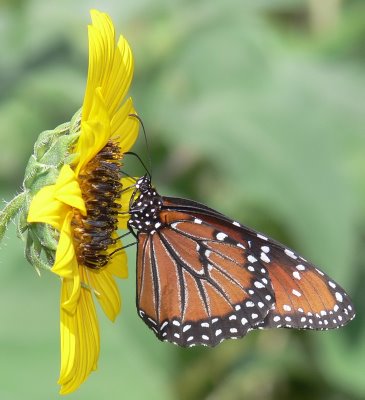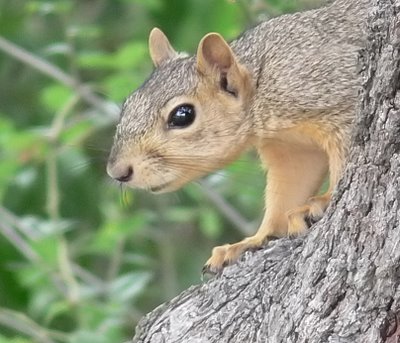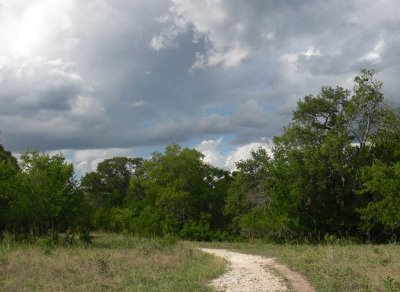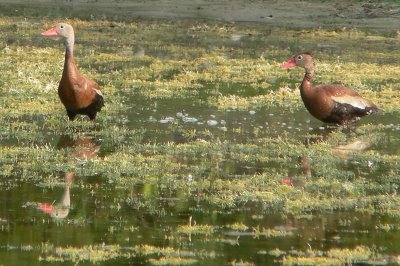It took them 20 years to go broke on the farm in Devine.
In the meantime, during the War, not knowing that times were hard, I was happy living on the farm. The only thing bad about the farm from my point of view was the black widow spiders, glossy black, round and shiny with glistening red hourglasses on their bellies, in the corners of the the outhouse and in the gloom a couple of feet below the seat. I was afraid of the spiders and would piss by the arroyo instead of using the privy. But my grandparents made me shit in the outhouse. I would squat over the hole so that I had no bodyparts hanging down in spider territory. We had neither electricity nor running water. There was a hand-dug well 50 feet from the back door.
(I wrote an earlier, much longer piece about about both my grandfathers and a bit about life in Devine as I remember it in this story a year or so ago, but I didn't talk much about the farm. )
All in all, the farm was a wonderful place to be a little boy, if we discount the spider situation, but my mother had to work in a cannery a few miles away to help out with money. On our excursion yesterday she said everybody in Devine was poor except for the banker and a couple of other people, so being poor was not a stigma. But money was very hard to come by. When we lived on the farm I was aware that my father was not around, but only vaguely conscious that my mother was away working a lot of the time. While she was gone I would help my grandfather out with the farm chores, or at least that was my view of what I was doing. Mostly he would let me tag along while he did a lot of hard work. I remember him shoveling muck out of irrigation ditches, wearing overalls and a pith helmet, muttering under his breath. I would have been happy to get in the mud and shovel stuff out of the ditch, but he wouldn't let me. But he would let me hold on to the plow handle behind the mules.
Toward the end of the War my grandfather traded in his mules for a tractor. I remember riding on the back of the tractor with my grandfather when someone came running out to announce the news that Roosevelt had died. Everybody was upset. I thought Roosevelt must be someone they knew, but they said he was the President. In those days we had real presidents.
Anyway, my mother and I drove around in Devine yesterday, and she told me what had been in the buildings that are now boarded up, and who had owned them. She pointed out the abandoned icehouse on the other side of the railroad track that still divides the town in half. I suddenly remembered going into the icehouse as a boy, which was startlingly cool in the otherwise inescapable summer heat, when we would get big blocks of ice, which in my memory are still enormous, which were hefted with ice tongs into some kind of blanket to minimize melting while being carried back to be chipped into smaller blocks for the icebox at home. I think they would deliver ice to my other grandfather's house. He lived in town. But farm people must have had to come in to get it.
There are times you realize you are getting along in years, when you have personal memories of stuff like this. Great black locomotives enveloped in steam and and smelling of coal smoke at the depot not far from the icehouse still inhabit some core part of my being. The guy who wrote the Little Prince and Wind Sand and Stars, I forget his name, once said that when someone dies a world dies with him. Who will remember steam locomotives and ice houses when we are gone?
So we saw the sights of Devine, and then (after a side-excursion to find the graves of several of my great-uncles and my great grandmother) we drove by the farm, which is hardly recognizable. The adobe house has been replaced by a brick one, and the big oak tree in the back yard is much smaller, partly because of the loss of a couple of limbs, but more likely because of the change in my own stature. That was the oak tree my grandfather danced Kiowa dances under, and sang in Kiowa as he danced. I still think of it as a kind of sacred tree, and was happy it was not dead, even though it is smaller than it was. The San Augustine grass under the tree had been planted by my grandparents 70 years ago.
We talked at some length to the lady who lives there. Her parents bought the place from my grandparents. She told us at length about her disagreements with her brother who had surreptitiously gotten their alzheimer-afflicted mother to sign the property over to him. She was indignant. She was still taking care of their mother and her brother is suddenly the owner of the place. I found myself interested in her inheritance story, and sympathetically indignant as well, like I still had some connection to the farm. I guess I do.
She did remember some of the things we mentioned about where things on the farm used to be, and told us what had happened to them. The well had caved in. The pond out back still has water in it, despite the dry weather. The small barn in back had fallen down. She invited us into her house, which was pleasant inside, and somehow seemed like the house I remembered from 60 years ago. She said that one adobe wall had been incorporated as a wall of the new house. We met her mother, the old lady with Alzheimers, who smiled at us. The room seemed incredibly familiar. For a brief moment I felt like I was back in our house on the farm.
========
This is a good part of the old downtown in Devine. The street runs parallel to the railroad track, which is just to the left out of the frame. There used to be another row of businesses on the other side of the tracks.
